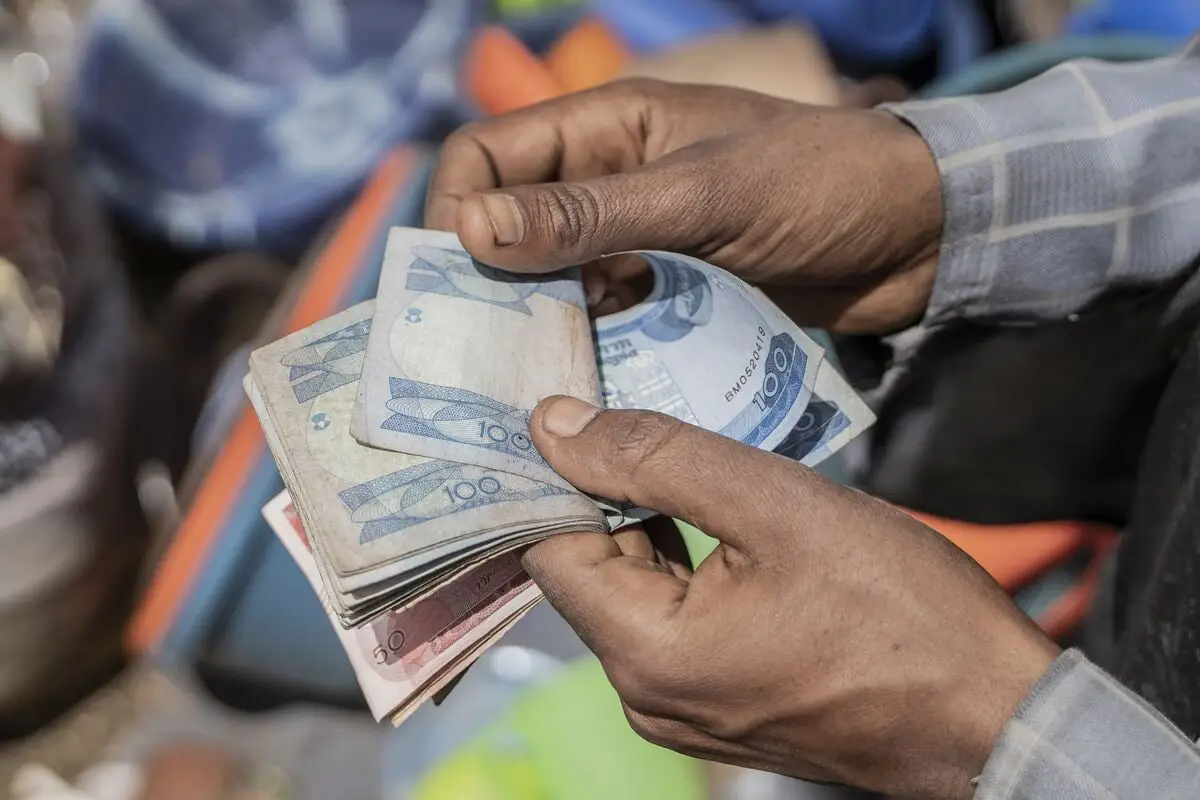Ethiopia lifts currency controls
The Ethiopian birr falls 90% against the US dollar as liberalisation brings economic promise and inflation risks
 Photo credit: Shega
Photo credit: Shega
A decision by Ethiopia to allow its currency to trade freely has sparked fears of inflation but could also significantly transform the economy in the long term. However, this comes with substantial risks, particularly the impact of inflation on low-income households. The national currency – birr – has depreciated by about 90% in the past month, plunging from around ETB 57 to the US dollar to as much as ETB 110. With inflation already running at 20% in June, there are growing concerns that a weaker currency could drive prices even higher by increasing the cost of imported goods. Prices for basic foodstuffs like onions and edible oil have already surged, and there are fears that higher import costs for fertiliser and pesticides could harm farmers. Reports also indicate that some farmers and suppliers are hoarding products in anticipation of further price rises. To cushion the immediate impact on the population, the government has decided to temporarily subsidise essential items, including fuel, fertilisers, medicine, and edible oil.
In late July, the Ethiopian central bank reversed its long-standing policy of fixing the exchange rate as part of efforts to secure over US$10bn in funding from the International Monetary Fund, the World Bank, and other creditors.
By allowing the Ethiopian birr's value to be determined by the market, the government aims to alleviate the severe foreign exchange shortage that had led to the creation of a thriving black market and hindered investments. The new policy aims to address these imbalances by allowing commercial banks to set foreign exchange rates and, for the first time, permitting non-bank entities to operate foreign exchange bureaus.
The government hopes this will help eliminate the black market where the birr was illegally traded at a highly discounted rate and led to a shortage of foreign exchange. Economists, however, have cautioned Ethiopia to carefully manage the new liberal exchange policy. Ethiopia will want to avoid a scenario like Nigeria's, where an abrupt exchange rate liberalisation triggered a sharp rise in inflation, resulting in nationwide protests. Already grappling with armed conflicts in parts of the country, Ethiopia can ill afford further unrest.
The crash in the value of the birr, however, could make exports cheaper and imports expensive thus reducing dependence on foreign goods and boosting exports The success of these reforms hinges on complementary policies that enable the private sector to thrive. Addressing input shortages, value chain inefficiencies, customs clearance issues, and security concerns will be crucial.
References
‘Ethiopian currency falls sharply after big policy change’, BBC, 29 July 2024
‘Ethiopia floats currency as it seeks to secure IMF deal’, Financial Times, 29 July 2024
‘Hundreds protest across Nigeria over soaring cost of living, fuel prices’, Al Jazeera, 01 August 2024
‘Ethiopia PM says talks underway with armed groups; one group denies any discussion’, VOA, 02 August 2024
‘Ethiopia’s PM defends currency float amid inflation concerns’, CNBC Africa, 02 August 2024
‘News analysis: Price hikes amid stringent gov’t measures left consumers in Addis Abeba anxious, uncertain’, Addis Standard, 08 August 2024
‘Price instability rocks Ethiopia as it reels from foreign exchange rate reforms’, AP, 12 August 2024
‘Ethiopia’s bold economic reforms target stability and growth, but they come with risks’, The Conversation, 16 August 2024
‘How Ethiopia’s currency float and IMF deal are powering economic reform’, The Africa Report, 21 August 2024
‘Ethiopia’s central bank governor calls currency float ‘transformative’’, Semafor, 22 August 2024
‘Reform and risk: How Ethiopia’s currency shift is reshaping everyday life’, Addis Insight, 24 August 2024














/enri-thumbnails/careeropportunities1f0caf1c-a12d-479c-be7c-3c04e085c617.tmb-mega-menu.jpg?Culture=en&sfvrsn=d7261e3b_1)

/cradle-thumbnails/research-capabilities1516d0ba63aa44f0b4ee77a8c05263b2.tmb-mega-menu.jpg?Culture=en&sfvrsn=1bc94f8_1)







